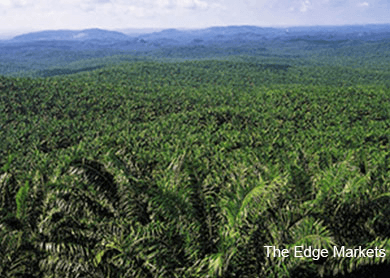
This article first appeared in The Edge Financial Daily, on October 26, 2015.
MALAYSIA’s plantation stocks are shaping out to be attractive investment propositions, amid increasing uncertainties over prospects for the domestic economy and the weak ringgit.
Crude palm oil (CPO) prices have rallied 21.9% from a recent low of RM1,806 to RM2,201 per tonne, driven by the ringgit’s weakness, fears of production challenges due to the El Nino weather phenomenon as well as a small recovery in crude oil prices.
To be sure, not all is rosy, and commodity prices are inherently volatile. From a fundamental perspective, the supply of global edible oils is high. Malaysian palm oil stocks are at their highest level since Jan 2013, at nearly 2.6 million tonnes. Cheap crude oil has resulted in sharp cutbacks in demand for biofuel and biodiesel.
Meanwhile, the price of soybean oil — the main substitute for palm oil — is mired at levels not seen since 2007. Nonetheless, palm oil is still trading at a substantial 13.5% or US$85.4 per tonne discount to soybean oil and remains the world’s most economical edible oil. This, and the ringgit’s continued weakness, should continue to provide a buffer for palm oil prices.
We recently did a plantation sector focus to find undervalued companies. With 42 plantation stocks listed on Bursa Malaysia, we had no shortage of companies to pick from. However, the familiar and bigger names are not cheap, and one has to dig deeper to find value.
Valuations for the sector are generally not compelling, due to the three largest planters by market capitalisation -- IOI Corporation Bhd, Kuala Lumpur Kepong Bhd and Genting Plantations Bhd — which are trading at premium valuations. As a result, the Bursa Malaysia Plantation Index trades at a hefty trailing P/E of 36.8 times and 1.75 times book.
Beyond the big caps, there are good value plays among several of the smaller players. Valuations are far more attractive, with P/E ratios of some companies at one-third to half the sector average. Apart from valuations, we looked at balance sheet strength, dividend yields and earnings growth prospects, with the latter depending highly on their tree aging profile.
Our top four picks in the sector are: United Plantations Bhd, United Malacca Bhd, Far East Holdings Bhd and Kim Loong Bhd. Here is a brief summary of why we like these stocks. We have also shown a comparison between their valuations, yields, production statistics and efficiency in the table above.
United Plantations Bhd: The 5th largest plantation company on Bursa Malaysia trades at more appealing valuations relative to its larger four competitors, with an ex-cash P/E of 17.3 times. The company is one of Malaysia’s most efficient planters, and has a diversified income stream due to its upstream and downstream operations.
United Malacca Bhd: An upstream planter that trades at 0.8 times book value and has an average tree age of 9.8 years. This will ensure steady fresh fruit bunch (FFB) growth moving forward as palm oil trees typically reach prime production from 8 — 15 years. As such, the company should see stronger earnings growth relative to its peers, which will deflate its current ex-cash P/E of 22.8 times.
Far East Holdings Bhd: This Pahang-based upstream planter will appeal to yield-seeking investors. The company has an above-average dividend yield of 4.1%, trades below book value and a sizeable cash pile of RM243.9 million, equivalent to 23.7% of its market capitalisation. Some 14.8% of its trees are immature, which will drive longer term growth.
Kim Loong Bhd: The Johor-based upstream planter and miller has a sizeable milling business, providing a more diversified income stream when CPO prices are volatile. The stock trades at a low ex-cash P/E of only 9.4 times, with a very high dividend yield of 8.2%. The stock was included in InsiderAsia’s Income Portfolio in June, and has since risen 9.7% relative to the FBMKLCI’s 0.4% decline.
